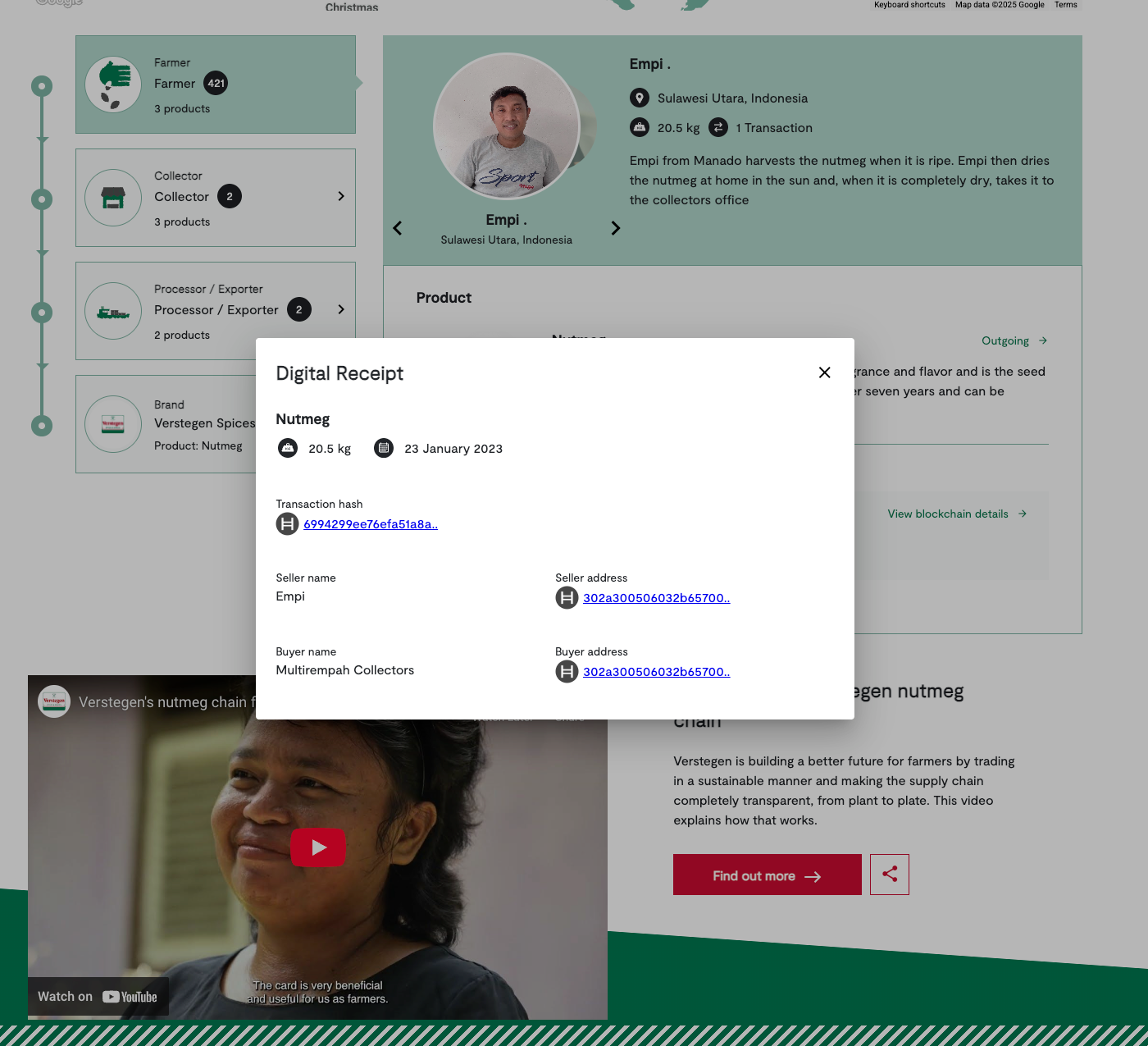



Mission

Carbon Project Integrity
The Guardian Ecosystem enables ALLCOT to create a standardized project development framework that fosters trust, transparency and compatibility across all project stakeholders. This ensures the creation of high-integrity projects while maximizing benefits for local communities.
The Guardian Ecosystem facilitates the fulfillment of methodology standards, validation body requirements, project developer needs, and community expectations, thereby enhancing the overall efficiency and transparency of the project
ALLCOT stakeholders benefit from access to accurate and comprehensive information on Hedera Guardian’s public ledger, leveraging a common set of rules and standards, fostering trust and accountability.
Transparently demonstrating how project resources are allocated on the public ledger enables ALLCOT’s stakeholders to comprehend the full scope of a project's efforts, flow of funds, and impact.
By recording the transaction cost at every stage of a project's progress, resulting carbon credits can be priced to maximize revenue distribution back to the local community.
By utilizing Hedera Guardian’s digital ledger, ALLCOT is able to minimize accounting errors, make auditing more open and efficient, and enable a more equitable emergence of verification and validation partners.
The Hedera Guardian Ecosystem establishes a secure chain of data custody, particularly in the case of drone-captured information for origination purposes. This enables ALLCOT to ensure that all project data remains intact, trustworthy and accurately tethered to each project attribute.
By ensuring that data provided aligns with the necessary frameworks, the Guardian helps meet specific industry needs and standards, while ensuring compliance with multiple reporting requirements.
ALLCOT is focused on creating products that surpass the limitations of conventional methods, shifting towards more advanced and efficient approaches to future sustainability markets.
The Guardian serves as a single source of truth, ensuring that policies and rules are standardized and compatible with other sustainability market actors. This enables ALLCOT to align financing through carbon forwards and the structuring of green bonds seamlessly across various entities within the ecosystem
The adoption of a common taxonomy within Guardian enables ALLCOT to establish a standardized language for discussing and addressing various sustainability issues. This fosters better communication and alignment for more effective and cohesive climate action.
By leveraging the flexibility and adaptability of Guardian, ALLCOT has the ability to provide various pathways for different stakeholders as the sustainability market evolves.
The Hedera Guardian Ecosystem operates as a common good, providing services to the entire ecosystem without an extractive fee-based model.
ALLCOT leverages the Hedera Guardian Ecosystem to build on and integrate various services and initiatives already established by other community members. This creates an aligned, streamlined ecosystem of sustainability market actors that avoids duplication to serve the needs of communities, investors, and project developers.
Pioneering fair payment for farmers through Carbon Markets with Hedera Guardian
Fairfood, in collaboration with the Hedera Foundation, is working to transform the food system: starting with fairer payments for the smallholder farmers who sustain it. Through digital innovation and decentralised infrastructure, this partnership empowers farming communities by equipping cooperatives and exporters, strengthening the foundations of sustainable supply chains.
By leveraging the Hedera Guardian - a decentralised, policy-enforced data framework built on the Hedera network - Fairfood is raising the bar for transparency and accountability in sustainability claims. From farmer payments to carbon credits, every data point recorded via our digital tools becomes verifiable, auditable, and trust-enhancing, ensuring real impact for farmers and their communities.
A network of trust: Partnering with industry leaders
Fairfood collaborates with leading agri-food companies - including Dole, Sucafina, Tradin Organic, and Verstegen Spices & Sauces - to embed fair and transparent practices across supply chains. These partnerships span diverse origins and commodities, supporting farmers producing coffee in Uganda, cocoa in Sierra Leone, fruit in South Africa, and spices in Indonesia.
The Hedera Guardian powers this work as a digital policy engine, hosting the world’s largest open-source library of environmental and carbon methodologies. It enables users to embed data with full methodological lineage and compliance metadata. By automating verification rules, Guardian translates raw data into audit-ready, comparable evidence, making it easier for supply chain partners and funders alike to trust the numbers.
"I see a future for doing business where economic success is interlinked with social and ecological success. Commerce and a positive impact need to go hand in hand. Our project with Fairfood is helping shape our business approach towards social impact — in the Sundays River Valley, where our citrus is sourced, that means social uplifting." — Lennart Visser, Marketing and Sustainability Manager, Dole Europe B.V.
Verifying payments, supporting livelihoods
In many countries, smallholders form the backbone of farming responsible for sourcing the globe. Yet, they struggle due to low compensation and financial security. By linking farmer transactions to Hedera’s decentralised ledger, Fairfood ensures that payments are traceable, verifiable, and directly linked to the individual farmer.
This not only improves transparency and accountability in supply chains, but also helps farmer unions and cooperatives build digital payment histories, unlocking access to better contracts, loans, and financial services. Or, in techy words: an online ledger takes shape, potentially allowing farmers to become bankable and eligible for micro loans. Back to the practical world: farmers working with big international companies like Dole, Sucafina, or Verstegen, can access digital receipts that confirm their earnings and are securely stored on the Hedera Network.
“Attestation is a powerful tool for ensuring that fair payments and sustainability commitments are not just promises but verifiable realities. This level of trust is essential for building resilient and equitable food systems.” — Derek Hardwick, Digital Solutions Manager, Fairfood
To give you a grasp, two examples show how decentralised trust and verified payments are already reshaping supply chains:
1. Nutmeg and pepper in Indonesia: consumer-facing trust, and agroforestry incentives
With Verstegen Spices & Sauces, we combined low-tech farmer cards and QR codes with our blockchain system to make the Indonesian nutmeg supply chain transparent. The NFC cards are provided to farmers to store transaction data offline, while SMS receipts keep them directly informed and a Premium is paid upon scanning, as farmers allow data to be collected offline and fed into Fairfood’s Trace platform for traceability purposes. At the same time, consumers scanning the QR code can trace the journey from farm to shelf.

The result is built-in trust: a transparent, consumer-facing system linking products to the farmers who grew them.
Building on this success, we are testing the model in Verstegen’s black and white pepper chains, adding an agroforestry component. Through a consortium of partners that involve local exporters and experts in the topic, training was provided so that 2,300 farmers could move away from monoculture, which has degraded soils and made crops more vulnerable to shifting weather patterns, droughts, and new pests. Here too, farmer cards digitise transactions and create traceable records that can be used to purchase inputs at better prices or access tailored support and training. This demonstrates how verified payments can go hand in hand with climate-smart farming practices; and how digitising every step of the way makes it easier for all stakeholders to back their claims.
2. Coffee in Uganda: scaling farmer cards and preparing for EUDR compliance
This low-tech solution to ensure digitisation in rural remote areas started to expand to other origins in the past years. In Uganda, a model project with 150 farmer cards at ACPCU quickly grew to 1,500 farmers. Beyond digitising transactions, the cooperative also began mapping farm polygons to prove non-deforestation, a critical step as the EU Deforestation Regulation (EUDR) comes into effect.
The success of this project caught the attention of UGACOF, a subsidiary of Sucafina and the country’s main coffee exporter. Together, we are launching a new project with 6,000 farmers. Equipped with farmer cards, they will track payments, map their farms, and participate in income and cost surveys. This data will guide targeted interventions to close the living income gap while ensuring good agricultural practices are followed. By tying verified payments to sustainability data, the system strengthens both farmer livelihoods and supply chain compliance.
The ripple effects of verifiable payments touch every actor in the chain. Verified payments can serve as the foundation for broader financial innovation. With decentralised, credible transaction records, farmers gain bargaining power and become eligible for microfinance products that were previously out of reach.
- For farmers: Creates a verifiable income record, opening access to finance
- For buyers: Secures premium payments and proves they are tied to climate-smart production, living income ambitions, and different sustainability claims
- For carbon markets: Anchors agroforestry’s carbon benefits to an immutable ledger, supporting insetting claims with evidence that carbon credits were generated from farmers from whom products were sourced - read more about it here.
Looking Ahead
As these projects show, decentralised trust starts with something as simple as a farmer card, but its ripple effects are transformative. Transparent, verified payments not only rebuild trust across supply chains and with consumers, they also lay the groundwork for financial inclusion. By extending these systems to other origins and linking digital records to microfinance, we envision a future where farmers can access affordable credit, invest confidently in their farms, and build resilience against climate and market shocks. In short: credible, verifiable transactions become the foundation for fairer livelihoods and future-proof supply chains.


.avif)